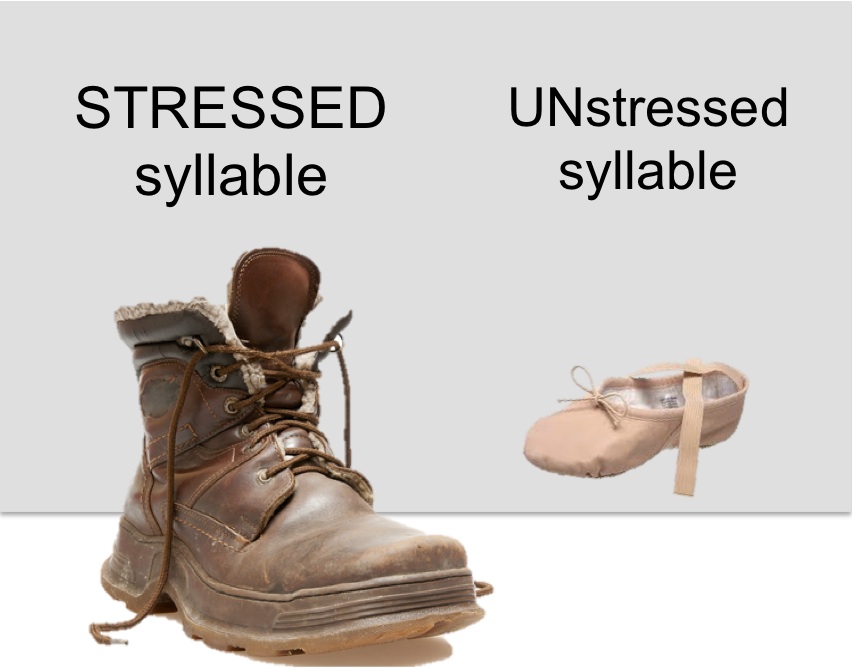Louder Longer Higher
STRESSED syllables are pronounced slightly louder, for a slightly longer duration, and at a slightly higher pitch
than UNstressed syllables.
The key to understanding Meter is understanding the difference between STRESSED and UNstressed syllables. Think of if like this:
When you say the word [NOSTRIL], you pronounce the stressed syllable, [NOS] slightly louder, for a slightly longer duration, and a slightly higher pitch than when you pronounce the unstressed syllable, [tril]. If you listen as you say the word out loud, you can hear that the first syllable [NOS] is STRESSED, and the second syllable [tril] is UNstressed.

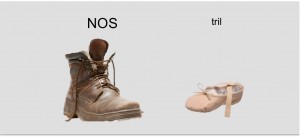 NOSTRIL
NOSTRIL
A great word for illustrating the difference between STRESSED and UNstressed syllables is the word [PRESENT]. The word [PRESENT] is really two different words depending on which syllable you stress. If you stress the first syllable, you get the word that means a gift. But if you stress the second syllable, you get a word that is the root word for presentation.

Louder Longer Higher
STRESSED syllables are pronounced slightly louder, for a slightly longer duration and at a slightly higher pitch than UNstressed syllables.
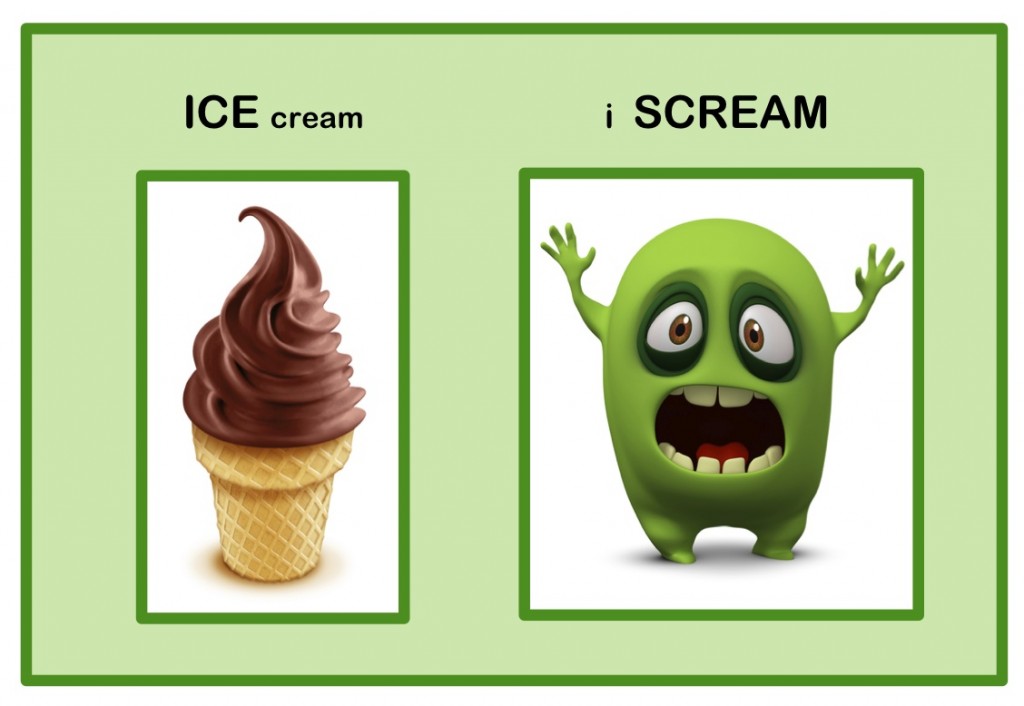
Oronyms can illustrate the difference between STRESSED and UNstressed syllables. The two oronyms on the right include exactly the same sounds in the same order, but the stress is on different syllables.
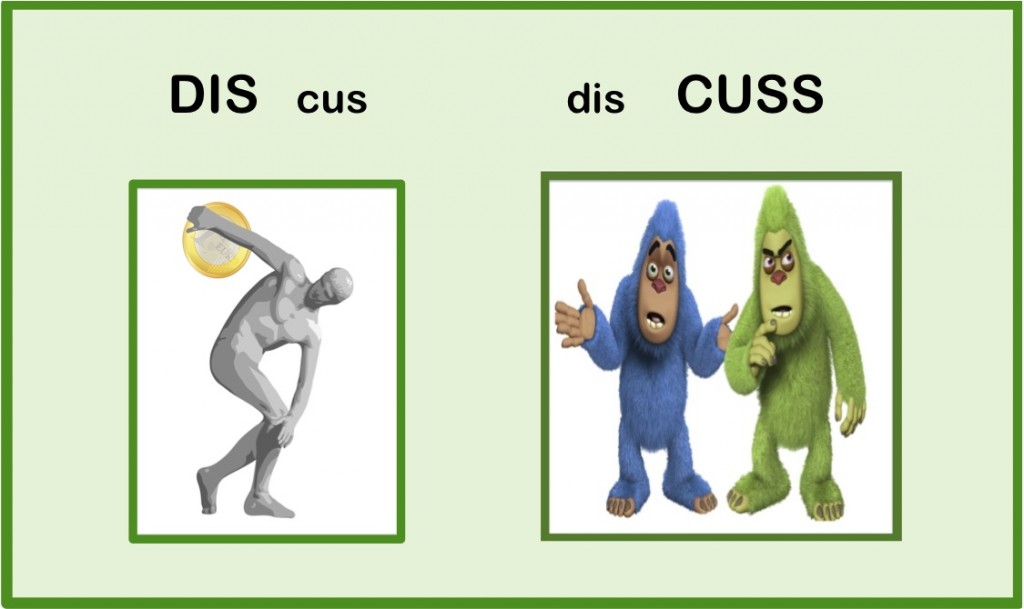
The words DISCUS and DISCUSS are also good for illustrating the difference between STRESSED and UNstressed syllables.
STRESSED & UNstressed Syllables
The table below shows which syllables are STRESSED (boot) and which are UNstressed (ballet slipper) in Watch Your 
Tongue, Cecily Beasley by Lane Fredrickson.
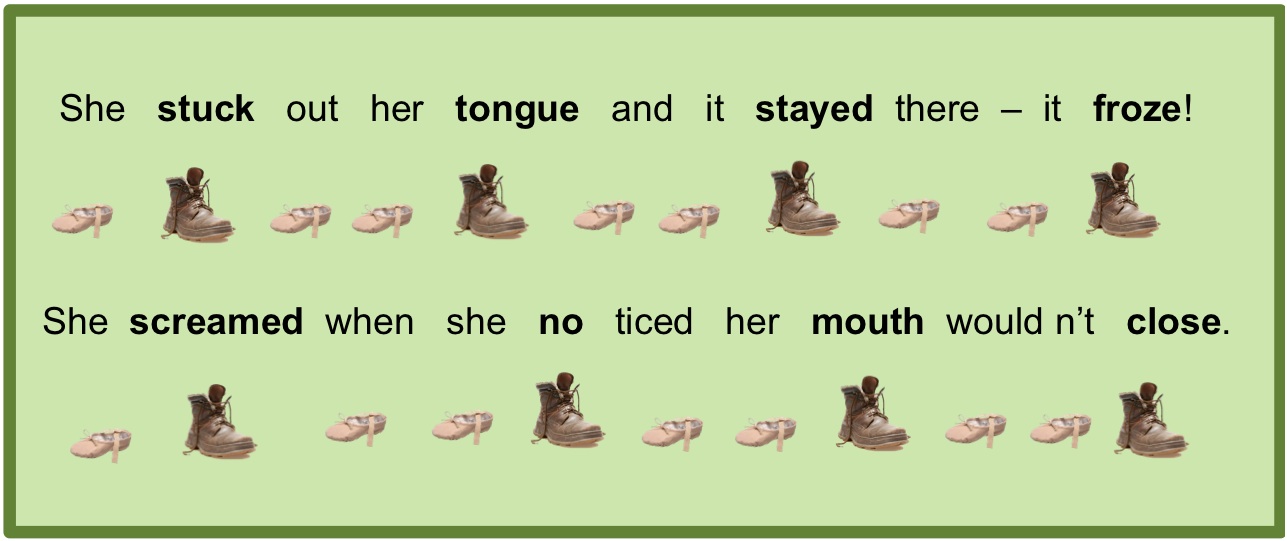
Louder Longer Higher
STRESSED syllables are pronounced slightly louder, for a slightly longer duration, and at a slightly higher pitch than UNstressed syllables.
For more on STRESS see 102B STRESSED WORDS
To see how STRESSED and UNstressed syllables make up words see 103 Metrical Feet


